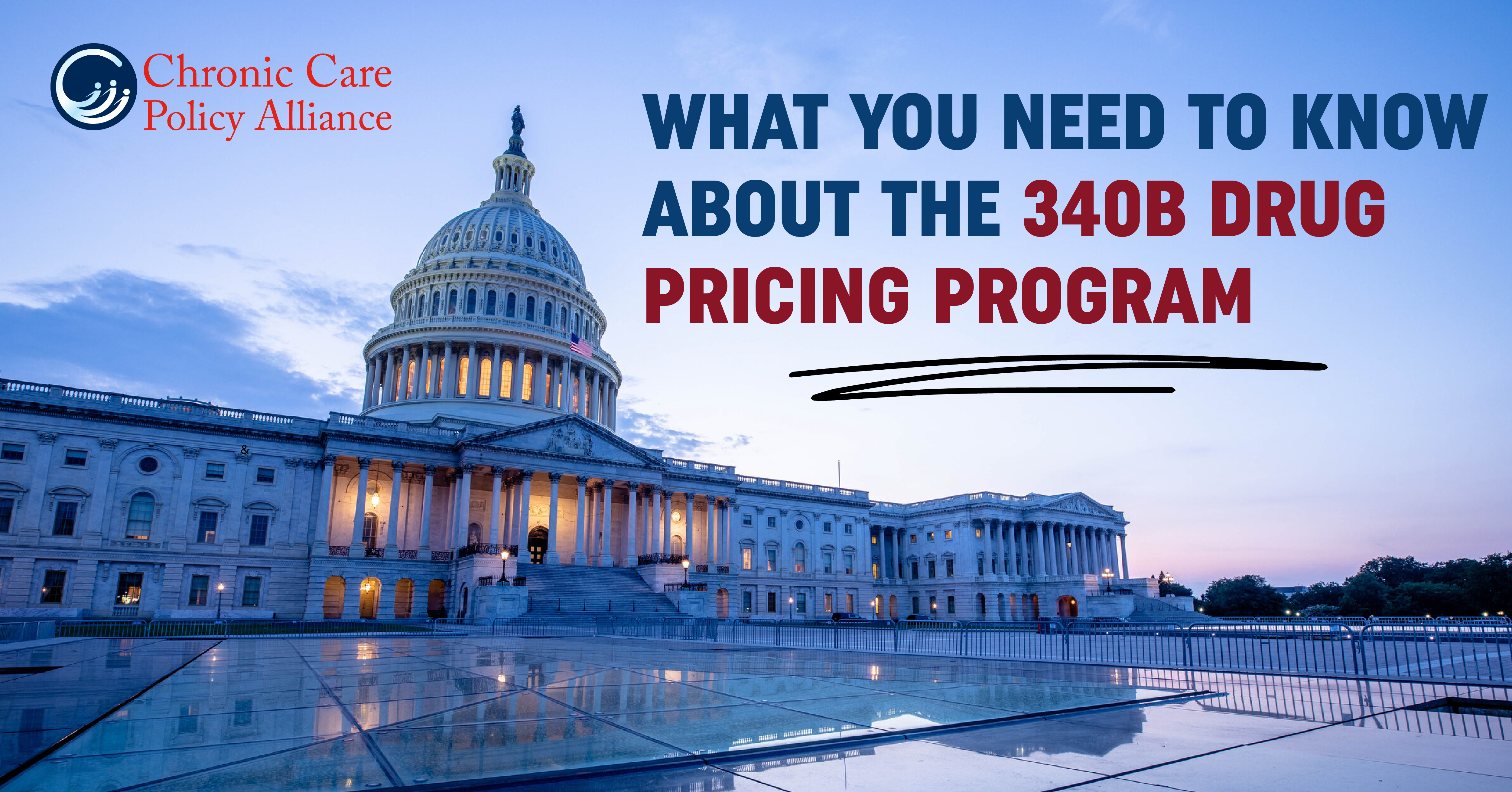Created in 1992, the 340B Drug Pricing Program was designed to expand access to affordable, discounted prescription medications for vulnerable, low-income, and uninsured patient populations. Over time, the 340B program has grown immensely to become the second largest federal prescription drug program in the country behind Medicare Part D. But the facts today suggest 340B has evolved beyond its original intent to better serve qualifying hospitals and pharmacies that provide these discounted drugs, rather than the vulnerable patient populations who need them, including many individuals with chronic conditions that CCPA advocates for every day.
Here are three things you need to know about the evolution of the 340B drug discount program:
- 340B Saw 400% Growth in Less Than a Decade. Between 2012 and 2020, the 340B program grew over 400%, with total 340B sales at discounted prices approaching $38 billion in 2020 alone. Unfortunately, the growth in 340B sales did not translate into better treatment access for patients. Bad actors are taking advantage of a program that allows qualifying entities to buy Rx drugs and treatments at a discounted rate with no obligation to pass on the savings to patients.
- 340B Allows Hospital Networks to Absorb Independent Community Clinics. Qualifying hospitals have been acquiring independent community healthcare practices at an alarming rate to consolidate care into costlier hospital settings. In turn, this leaves uninsured and indigent patient populations who rely on 340B to access their medicines with fewer care options.
- A small number of 340B hospitals provide the vast majority of care to patients. Just 24% of all 340B hospitals provide 80% of the total charity care provided by hospitals in the program. This means deserving patients have fewer care options, and the care options they do have are overburdened.
For vulnerable, 340B eligible patients with cancer, HIV, or any other complex disease, the question must be asked: is 340B still providing affordable access to necessary treatments and medications as it was intended to, or is it only serving the hospitals that make up the program?
As lawmakers look for ways to improve healthcare equity and prescription drug access, they should bring greater oversight and transparency to 340B and modernize the program to better serve patients.


